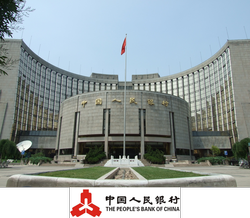The Central Bank of China does not want to "regulate" the issue of virtual currency as a fundraising method: on September 4, 2017, it prohibits it

The nature of virtual currency remains uncertain. In any case, the object is very attractive, in particular because its nature, presented as "new", implies that its handling is not regulated.
This allows, in particular for individuals or start up, to issue "tokens" to offer them in exchange of funds, by the "initial coin offerings (ICOs)" technic, tokens acquired by investors, without being banking institutions, or borrowing money , nor issuing capital securities.
Operators demand that this behavior be recognized in its novelty and be recognized as being governed only by the contract and the general principles of loyalty, commitment and information, because what it is not prohibited is permitted while what is not regulated is freely organized by the parties who consent to it.
As media report, the Banking Regulator of China, has just decided otherwise. It has decided that the fundraising by individuals or companies by means of virtual currency will now be banned.
The question is whether other Regulatory Authorities could do the same.
Read below.
It could be said that such a radical decision applies only to such an economic and legal system. In the Chinese economy, it is doubtless more a principle of guardianship that prevails and not a principle of freedom. Consequently, the central bank, that is to say, the State says what it wants, prohibits or authorizes, the State being always the one that Ex Ante allows the operator to act in a space held by the State. Such a measure would therefore not be possible in systems of regulated economics, in which the principle is freedom and regulation the exception, organized only when there is a market failure.
But precisely, the Central Bank of the Republic of China has justified its banning of the mechanisms of emission of virtual money to raise funds.
In a statement issued jointly with other Chinese regulatory and supervisory institutions, it stated that the prohibition was on the one hand to protect investors and on the other to protect the economic and financial system, which was disrupted by conduct equivalent to obtaining a result (equivalent to an issue of securities) without submitting to the binding regime associated with the benefit of such an action.
However, such a regulatory aim, here radically sanctioned by the Chinese Regulator by banning the use of virtual currency, may also be taken in consideration in liberal economies also, in which regulators are in charge of the same goals.
In the United States, the Financial Regulator, the Securities and Exchange Commission has expressed the same concern, by a statement published on 25 July 2017.
But the US financial regulatory authority has not drawn the same result. It considered that such an action consisting in raising funds through the technique of tokens based on the issuer's value is a technique of securities and that it should not be allowed to proceed subtract from the Securities Law which is correlated therewith.
The idea is the same, expressed in the United States and China, and it is general: it is not permissible to want the butter and the money of the butter, especially if one weakens in this the financial system and the capital markets, whose strength and coherence is the very purpose of the Regulator's mission. And this even outside of China.
____

comments are disabled for this article